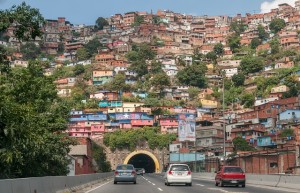 To understand Venezuelan poetry and the people who write it, you must first understand the history of Venezuela. Often referred to as the ‘Land of Grace,’ Venezuela has a history that is laden with slavery, violence, inflation, food shortages, and political turmoil. Additionally though, it sits on the largest oil reserves in the world; however, today Venezuela faces severe economic issues and massive debt.
To understand Venezuelan poetry and the people who write it, you must first understand the history of Venezuela. Often referred to as the ‘Land of Grace,’ Venezuela has a history that is laden with slavery, violence, inflation, food shortages, and political turmoil. Additionally though, it sits on the largest oil reserves in the world; however, today Venezuela faces severe economic issues and massive debt.
Despite its many economic issues, the people of Venezuela are proud of their country and especially the rich artistic culture that is very much alive and thriving today. This is in part because Venezuela has a young population with thirty percent of its citizens being under the age of fourteen. Thus, Venezuela’s culture is youth-oriented and obsessed with beauty and demands for gender equality are in the forefront. They take great pride in the arts and even host the annual World Poetry Festival, which embraces the growing number of young poetry lovers residing there. It is also Venezuela’s younger population, perhaps the same that attend the World Poetry Festival, who continue to protest the government and its current laws.
So it will come as no surprise that the young citizens are interested in both poetry and politics. They want change and poetry is a great avenue and tool being used to change the thinking of its citizens and the government. The following are examples of poets and the work that has helped shaped Venezuela’s art culture.
Andres Bello (1781-1865) – A poet, diplomat, and humanist Bello was born in Caracas, Venezuela. He attended Caracas University and graduated with a Bachelor’s degree in 1800 before he took up writing poetry. While his work largely focused on Spanish American culture, his most famous was Agricultura, which spoke to the transformation of his beloved country due to the wars fought for independence. Bello also wrote Resumen de la Historia de Venezuela and Silvas Americanas.
Leoncio Martinez (1888-1941) – A poet, playwright, and journalist among other things, Martinez began creating humorous cartoons for a newspaper at the age eleven. Throughout his life he was imprisoned several times for his criticism of the government including in 1920 when he wrote what is perhaps Venezuela’s most important poem to date. It was the Ballad of the Sleepless Prisoner. It is hopeful, with themes of resistance and fortitude displayed by a man forced into exile. He also published My Other Puppets and was responsible for the magazine The Cripple.
Adriano Gonzalez Leon (1931-2008) – Leon was a writer and actor who attended the Central University of Venezuela and was s left wing ideologist. He was very politically active in his twenties. He is best known in his country for his novel País Portátil, but also wrote Damas, De Ramas y Secretos, and Hueso de Mis Huesos.
In summary, Venezuela maintains a strong national identity despite its faults and continues to press on. Similarly, its citizens are fervent about change and enjoy poetry that reflects their culture and its people.




